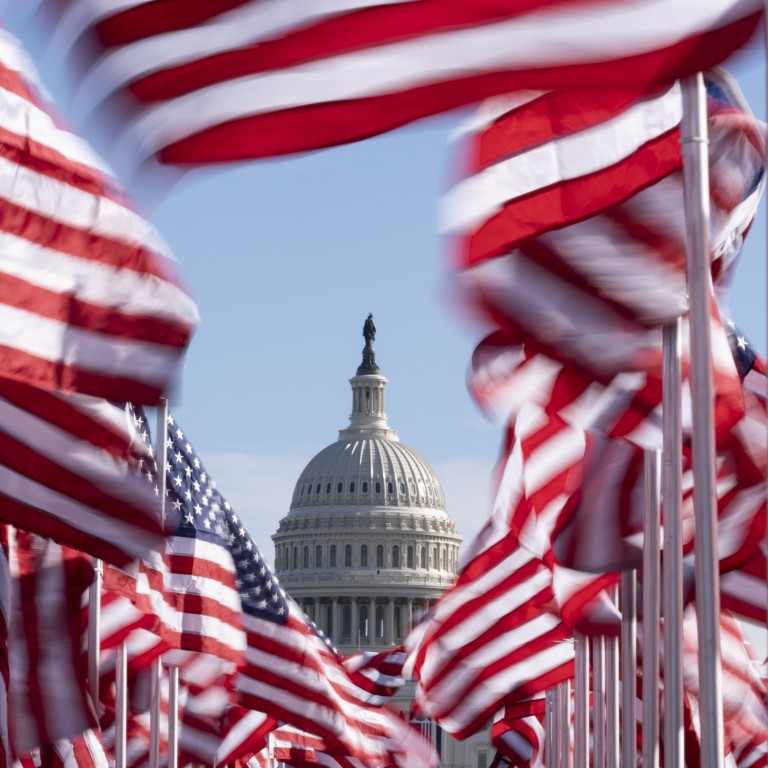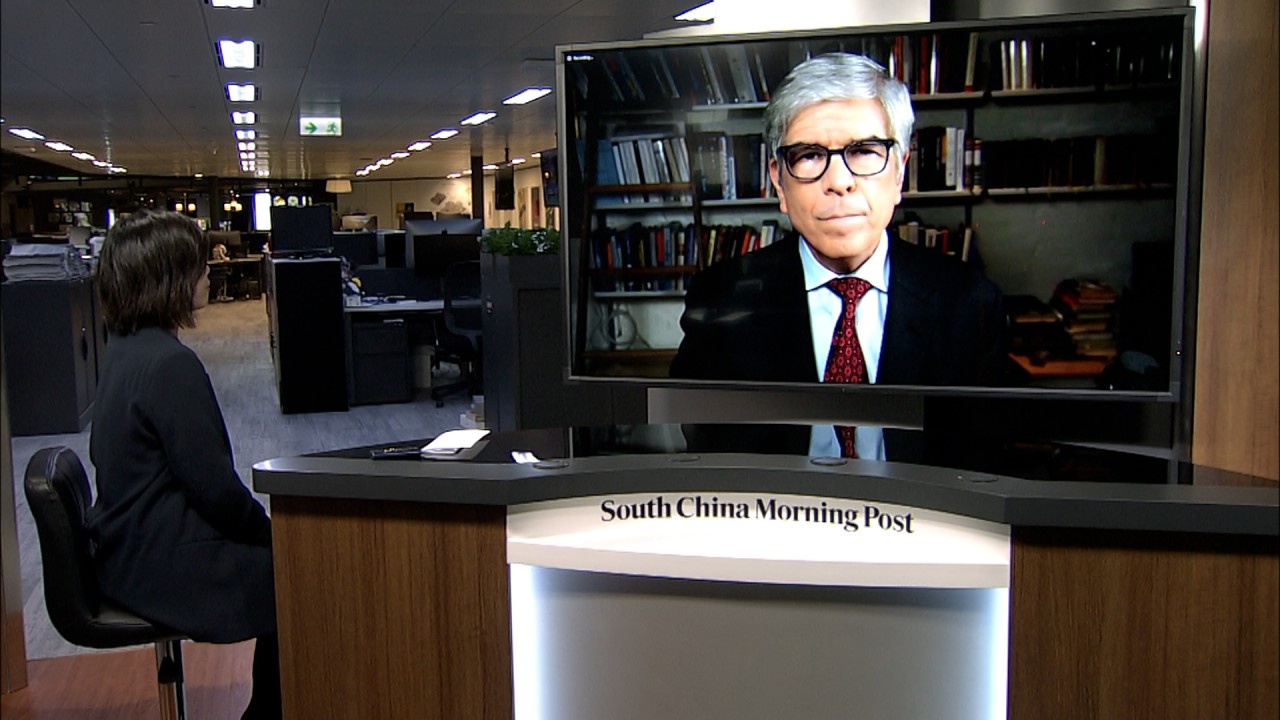
Joe Biden’s China trade policy: make America great again, not Wall Street
- There are signs banks will be pushed down the pecking order in Washington’s new mission to bring jobs and industries home
- Observers say financiers have dominated US trade policy since the 1980s but their influence appears to be on the wane
In an interview on National Public Radio in the US on December 30, Sullivan criticised the administration of Donald Trump for what he called favouring US financial conglomerates in trade talks with Beijing.
He asked how “making it easier for the likes of JPMorgan or Goldman Sachs to be able to carry out financial activities in Beijing or Shanghai” improved jobs and wages in the US.
US will hold China accountable for threatening regional stability, Blinken tells Yang
Criticising policies of the outgoing administration is not unusual, but the voices coming out of the Biden camp could be seen as co-opting Trump’s “Make America Great Again” mantra. The message is to rebuild US manufacturing industries and boost employment, especially considering the economic damage caused by the Covid-19 pandemic.
In this scenario, the interests of investment banks get pushed down the pecking order. That would be a significant shift from the domination of American policymaking by Wall Street financiers since the 1980s, according to Michael Pettis, a professor of finance at Peking University, who spent more than a decade working at US investment banks before moving to academia.
What about the workers?
Comments by Katherine Tai, Biden’s nominee for US trade representative, echoed Sullivan when she said the president was stressing “a worker-centred policy”.
“What it means in practice is that US trade policy must benefit regular Americans, communities and workers. And that starts with recognising that people are not just consumers. They are also workers and wage earners,” she said in a January 12 speech to the National Foreign Trade Council, a US business advocacy group.
The shift was formalised on January 25, when Biden signed a “Made in America” executive order that requires the federal government to use US suppliers and manufacturers when spending taxpayers’ money. Nearly US$600 billion worth of government contracts fall under the purview of the order, according to a statement from the White House.
The Trump administration, for all its populist trappings, had plenty of former Wall Street executives in positions of influence – treasury secretary Steven Mnuchin, a former hedge fund manager; JPMorgan CEO Jamie Dimon, who sat on Trump’s business advisory council, and Stephen Schwarzman, CEO of private equity giant Blackstone, who mediated between Trump and China’s President Xi Jinping.
So far, Biden’s administration has no one as senior as Mnuchin with a Wall Street history.
President Xi woos global business leaders with vows of ‘opportunities’
China exports jobs?
Representatives of US business interests in China have commended Trump for his efforts to open up the country’s financial markets to US banks.
“Before we are too harsh on the Trump administration, let’s agree they were right in pointing out the glaring lack of reciprocity in a number of areas. Electronic payments would certainly be one,” said Ker Gibbs, president of the American Chamber of Commerce in Shanghai.
He contrasted the lack of access in China for such businesses, while firms like China Union Pay and Alipay operated in the US with few to no restrictions. Alipay is owned by Ant Group, an affiliate of Alibaba, which owns the South China Morning Post.
Gibbs also argued it was not true to say US businesses in China do not create jobs in the US.
“American companies sell products in China that generate revenue and strengthen the global business and create headquarters jobs like R&D,” he said, adding there was still a “misconception” that US businesses were in China to manufacture low-cost goods for export. “Very few are in the China market for cheap labour, that’s very much something of the 1990s.”
Nevertheless, Biden needs to reverse the decline in US jobs and manufacturing – much of it outsourced to China after it joined the World Trade Organization in 2001 – and now exacerbated by the pandemic. It is increasingly clear his administration is not looking to Wall Street for answers.
What could Biden’s United States mean for China?
That sucking sound
Trump’s unlikely 2016 victory was widely attributed to widespread anger and frustration among US workers about the export of their livelihoods. And according to Hung Ho-Fung, a professor of political economy at Johns Hopkins University in Baltimore, Wall Street played a central role in that business shift to China.
“Wall Street is at odds with American jobs because in the 1990s and 2000s there was a lot of pressure from shareholders, mainly Wall Street institutional investors, for companies to increase their profit margins,” Hung said.
“It was under this Wall Street pressure that companies like Apple went overseas to start housing all their production in China as a radical measure to cut costs, closing all the assembly lines in the US.”

03:29
China investment should follow Westphalian principles, says Nobel laureate Paul Romer
Trump’s Republican administration was far from the first to prioritise the interests of banks and brokerages when it came to China, said Hung, who published a peer-reviewed paper in the April edition of Review of International Political Economy on the history of Wall Street’s influence over US China policy.
In it, he said financiers clashed with officials in Bill Clinton’s administration in 1993-94 when the White House wanted human rights and labour standards to be central to trade negotiations with Beijing. Wall Street won that argument, Hung said.
Fat fees
This lobbying caused a “180 degree reversal of policy in the first year of Clinton’s administration”, which set in motion a new era of Wall Street influence in the White House, marked by the creation in 1993 of the National Economic Council (NEC), Hung said in an interview.
China’s top diplomat tells US not to follow ‘misguided’ Trump policies
The council’s first head was Robert Rubin, who spent 26 years at Goldman Sachs, rising to become its co-chairman, and went on to serve as US treasury secretary.
“After Robert Rubin, The vast majority of [NEC officials] … were all Wall Street veterans,” Hung said.
But it was Wall Street’s central role in the 2008 financial crisis that led to the global recession and started the backlash against globalisation – something the Biden administration could not ignore, even if it wanted to, he said.
“With the rise of Bernie Sanders on the left and the rise of Trump and so-called right-wing populism on the right, the American workers – who were promised a trickle down of economic benefits from globalisation and the rise of finance and global investment – didn’t see the benefit and they are angry.”
“International economic policies are not acts of charity to other countries or service to American elites but are direct contributors to raising the incomes of middle-income families.”
For foreign firms in China, it’s either follow regulations or look elsewhere
Such a statement from a US economic policy heavyweight like Summers was a sign of how times had changed, according to Peking University’s Pettis, who co-authored the book Trade Wars Are Class Wars, which argues that trade conflicts between countries pit the bankers and owners of financial assets against ordinary households.
“When you look at who benefits from the Chinese trade surplus and the US trade deficit, it’s the same group of people,” he said.
In the US it was the banking elites, while in China it tended to be the political elites, but in both countries ordinary workers lost out, said Pettis, who teaches at the university’s Guanghua School of Management.
“American GDP has grown a lot since the 1980s, but the income of the bottom half of Americans hasn’t changed at all, so 100 per cent of the growth was concentrated among the rich and I think there is a growing recognition of this problem. It’s a problem of income inequality, it’s a problem of huge trade imbalances,” he said.
“At least on paper, Joe Biden and his administration are talking very seriously about addressing this … whether they do it in reality, we’ll see – the proof is in the pudding.”

